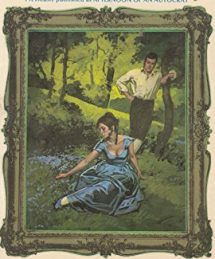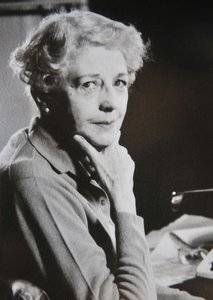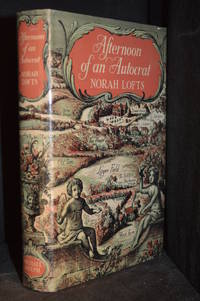Afternoon of an Autocrat (Norah Lofts)

Norah Lofts (1904 to 1983), mostly forgotten in this twilight of the gods, was a popular English novelist. Afternoon of an Autocrat *(1956) is set in Suffolk, in the fictitious village of Clevely at the time of its ‘enclosure’. In Britain, thousands of ‘Acts of Enclosure’ were passed between 1604 and 1914. A passel of commissioners, (susceptible to good hospitality, spite and whim) would descend upon a village and delineate how fields and hitherto common lands were to be parcelled out to those with claims evidenced by writing, social superiority, ancient usage or bribery.^
Part One, (“Afternoon of an Autocrat”) makes short work of the stolid squire of Clevely. “On the third Saturday afternoon of October, in the year 1795, Sir Charles Augustus Shelmadine set out on what – though he naturally had no notion of it – was to be his last ride.” When Sir Charles dies, so does the village’s bulwark against enclosure.
Sir Charles’ cold and debauched heir, Richard, succeeds him and in Part Three – “High Noon of a Changeling” – is persuaded by the ‘lisping’ Mr. Montague Ryde Montague to petition for enclosure. “‘I cannot, of course, guawantee that you will do as well out of your enclosure as I did at Gweston,’ he warned. ‘I was deucedly lucky in my commissioners and in the number of fellows who either had no claim to show or couldn’t pay their share of the expenses. Now there is a hint! Don’t twy to keep down expenses.’..”
These kinds of arbitrary land allotment practices led in part to the Torrens Title System of Land Registration which was developed in The Varnished Culture‘s home state of South Australia. It grew out of the confusion and inequity of the recording of land rights in a long and dodgy system of Deeds or scratches on a village milestone. The poor men of Clevely generally cannot prove their claims. “‘Matt Juby dug up a paper, and Amos Greenway…[did spell]…it out for him; and that told how way back his careful old great-great-grandad did get leave from the Squire to build a cottage and graze his beasts…Maybe we all had papers in the past; but you know how it is, sir – folks that can’t read or write don’t set such store by papers as them that can. And there ain’t much space for hoarding such things.'” “‘One chap’d even got his paper – little old black scrap of stuff that was too, and nobody could read it…” “the sort of thing we all had, no doubt, till some silly young bitch used ’em as hair curlers...”
Any lucky villager allotted land must pay a fee and fence the land at his or her cost within a certain period of time, or forfeit the land. Those who thus acquired a landholding which had previously been divided into a number of small pieces of land usually prospered. Others, such as the paupers in the ‘hovels’ of Clevely, now denied the use of ‘The Waste’, were left with the use of the land between the highway adjacent to their dilapidated cottages and the fence immediately behind them, making the tilling of land for potatoes or the feeding of livestock impossible. So they left and sought work, or fell upon the miserable charity of the parish.
Lofts has an acute psychological sense and an unsparing eye which she uses to create demented rich woman, ill-used wife and religious maniac alike. There is an unnecessary supernatural overlay concerning a young woman, Damask Greenway, who takes revenge upon the young man who jilted her, Mithraic rites and a man who (through a Faustian bargain) can neither divest himself of good luck, or die. “‘But to return to Mundford, the sight of him makes me expectorate – he must be hard on eighty; and yet he doesn’t look it, does he?’ ‘So perhaps the rumours are right. He always wins; he does not grow old…'”
The interest in this story lies in the individual villagers, who are (until perhaps a final soft landing) spared none of Loft’s unsentimental assessment or the indifference of fate while stumbling through the desperate issues of poverty and the interplay across generations of meanness, generosity, misunderstanding, old loves and enmities.**

Norah Lofts

Leave a comment...
While your email address is required to post a comment, it will NOT be published.


1 Comment